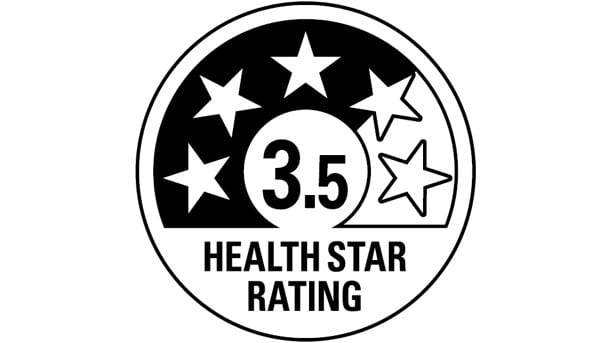Key insights:
- 99% of Bimbo’s core products are now additive-free.
- It’s growing fast in emerging markets and clean-label trends.
- A purpose-driven culture is fueling long-term success.
Grupo Bimbo is easy to underestimate as a legacy brand past its prime. It’s a white-bread behemoth from Mexico, best known for burger buns and sliced loaves – not exactly the poster child for modern nutrition or innovation.
But that assumption is badly outdated. In fact, Bimbo is quietly undergoing one of the most ambitious reinventions in global food.
At a glance, the company’s Q2 2025 numbers are impressive: net sales surged 9.4% year-over-year to reach 107.5 billion pesos (approx. US$6.3 billion). Adjusted EBITDA came in at 14.9 billion pesos (approx. US$875 million). Net income was 2.82 billion (approx. US$165 million). Those are solid numbers but they only tell part of the story. What’s more compelling is how Bimbo is adapting to a changing food world.
Grupo Bimbo faces a market in flux. The global bakery category was valued at $480.2 billion in 2024 and could balloon to $731.7 billion by 2032, growing at 5.45% annually. But where that growth happens is changing fast. Europe’s dominant 32.8% share is projected to shrink as emerging markets pick up speed, fueled by urbanization, dual-income households and rising middle classes. That’s a tailwind for players like Bimbo, which already boasts deep penetration across Latin America, Southeast Asia and Africa.
Meanwhile, in mature markets like the US, the battle isn’t just for market share – it’s staying relevant. Consumers are shifting their habits fast. According to Mintel, 71% of American adults say they’re trying to eat more protein, while nearly half say they’re cutting back on refined carbs. For almost half of Gen Z, white bread’s seen as old-fashioned. And among millennials, 63% say they prefer breads with added nutrition – think fiber, seeds or extra protein.
That shift is showing up on shelves. What started in gyms has gone mainstream, with protein-enhanced versions of everything from cereal and pancake mix to ice cream and even salad dressing.
But here’s the catch: most Americans still aren’t getting enough fiber or whole grains. So while shoppers are busy chasing ‘high-performance’ foods, many are still missing out on the basics, like fiber and whole grains. That puts real pressure on brands like Bimbo, which sit squarely in the middle of the market. Staying relevant now means getting smarter about innovation and sharper with positioning.
That makes execution critical. Can Bimbo’s two-tier pricing approach in North America stabilize share before margin erosion accelerates? Can investments in robotics, recipe reformulation and back-end automation preserve operating leverage? These are the questions that matter now.
So no, Bimbo isn’t coasting on reputation. It’s racing to stay relevant and in many ways, pulling ahead.
From buns to biotech: Nutrition as a strategy

Bimbo’s biggest pivot isn’t in product type, but what’s inside the product. As of mid-2025, 99% of the company’s daily consumption portfolio – its core breads, buns and regularly eaten baked goods – are free from artificial colors and flavors. Even more ambitious: by year’s end, Bimbo aims for 100% of its bread, buns, and breakfast items to carry a Health Star Rating (HSR) of 3.5 or higher.
That’s no small feat. The HSR is a front-of-pack labeling system developed in Australia that’s quickly gaining international traction. Scoring 3.5 or above means a product has to meet stringent limits on added sugars, saturated fat, sodium and often needs to include dietary fiber or whole grains. It’s the kind of target that requires deep reformulation – not just a label tweak.
Already, 45% of Bimbo’s global sales are coming from products rated 3.5 stars or above. And the rest of the portfolio is being reformulated to catch up. In a category often slammed for fueling obesity and chronic health issues, this is a meaningful shift.
And it’s not just reactive. Bimbo’s nutrition strategy goes beyond current regulations. It’s eliminated high-fructose corn syrup, azodicarbonamide, artificial preservatives and partially hydrogenated fats – regardless of whether the law requires it. That puts the company ahead of the curve, particularly in emerging markets like Southeast Asia and Eastern Europe where regulatory frameworks are still catching up but consumer demand for cleaner labels is rising fast.
On the Q2 earnings call, executive chair Daniel Servitje summed it up simply: “Health and nutrition are one of the most important transformation axes of the company.”
Legacy food giants talk a lot about health transformation. Grupo Bimbo is actually doing it.
The global giant you didn’t see coming

What’s perhaps most remarkable is how Bimbo’s done all this while flying under the radar. It’s one of the world’s largest baked goods companies, operating in 39 countries, with more than 200 production facilities and distribution networks in 75+ markets. But unless you live in Latin America or parts of the US, you might not even realize how big Bimbo really is.
Recent acquisitions show a clear strategic direction. In 2025, Bimbo acquired Don Don, a leading player in the Balkans, and took full ownership of its Colombian business. The strategy is unmistakable: target high-growth regions, acquire trusted local players and scale them up using Bimbo’s clean-label expertise and world-class manufacturing muscle.
It’s also investing where it already leads. In Mexico, Bimbo is spending over $2 billion between now and 2028 on automation, infrastructure, sustainability projects and nutritional R&D. That includes greener energy systems, water reuse tech and highly automated facilities designed to improve both quality and cost control.
“Our balanced approach between investing in the business and maintaining our financial discipline continues to be a differentiator for Grupo Bimbo,” said CFO Diego Gaxiola told analysts on the Q2 conference call.
While plenty of food companies are still battling supply chain bottlenecks, Bimbo’s setup gives it an edge. By baking close to where it sells, the company avoids a lot of the cross-border delays that trip up competitors. It also means Bimbo can tweak products to suit local tastes and react faster when the market shifts. In short: while Big Food was busy chasing scale, Bimbo quietly built a smarter, more agile model.
More than just a breadwinner

All this investment and reformulation might sound expensive – and it is. But Bimbo’s still making solid money. Even with rising costs and currency ups and downs, Bimbo is still turning a solid profit and keeping cash flowing. As of late July 2025, though, its share price still didn’t seem to reflect just how well the company’s actually doing. Some analysts say it’s still trading below what it’s worth, pointing to a long streak of healthy cash flow and reliable growth. It’s not flashy, but it is steady and that counts for a lot in today’s unpredictable food market.
Sales are a bit slower in North America, especially in the US where shoppers are leaning into cheaper store brands. But Mexico continues to carry strong margins, and Latin America, Europe and Asia are picking up speed.
CEO Rafael Pamias told investors, “We’re proud of the results we’ve delivered, and even more so about the actions we’ve taken to futureproof our business and build an even stronger Grupo Bimbo for the long term.”
So while some investors may be overlooking Bimbo, the company itself is doing just fine and positioning itself to thrive in the years ahead.
The Servitje legacy

The strength of Grupo Bimbo is rooted in a guiding philosophy set by its founders.
Don Lorenzo Servitje Sendra, who co‑founded the company in 1945, instilled a vision of a ‘highly productive and deeply humane’ enterprise – anchored in integrity, social purpose and respect for people.
His brother, Don Roberto Servitje Sendra, also played a monumental role, as Bimbo’s first employee and later CEO and board chair. He passed away on July 17, 2025, at the age of 97 in Mexico City. In his obituary, Bimbo honored him as “not only one of our founders, but our first associate … whose human warmth and business discipline inspired thousands.”
Their legacy was carried forward by Daniel Servitje, who led as CEO from 1997 to 2024. Under his leadership, Bimbo expanded globally, embraced sustainability and launched its clean label transformation. In 2024, he transitioned to executive chair, handing over CEO duties to Rafael Pamias, signaling renewed focus on innovation and ESG strategy. As Servitje stated at the time: “We want to be the company that feeds a better world.”
That’s not window dressing. The company’s people-first, purpose-driven ethos informs its approach to sustainability, health and innovation. And in an era where ESG isn’t just a buzzword but a business requirement, Bimbo’s cultural DNA gives it a competitive edge.
You can see it in how the company talks about health - not just as a selling point but as a moral obligation. Or in how it supports local communities and maintains long-term supplier relationships even during downturns.
Futureproofing a successful bake

But the upside is big. Bimbo isn’t trying to become a flashy wellness brand or a startup chasing the next buzzy ingredient. Its strategy is more practical and potentially more powerful. It’s about making the everyday foods people already eat – toast, sandwiches, sweet snacks – a little healthier, a little cleaner and a lot more futureproof. And it’s doing that across dozens of markets simultaneously.
That’s what makes Bimbo’s transformation so interesting. It’s not betting on trend-chasing. It’s betting on broad-based change – regulatory, generational, geographic. From reformulating to meet Health Star Ratings to investing in robotics and clean energy and to expanding in markets most competitors overlook, Bimbo is reshaping not only its own business but the category it leads.
Grupo Bimbo might still look like a bread company. But in truth, it’s one of the few global food giants actively preparing for what comes next.




